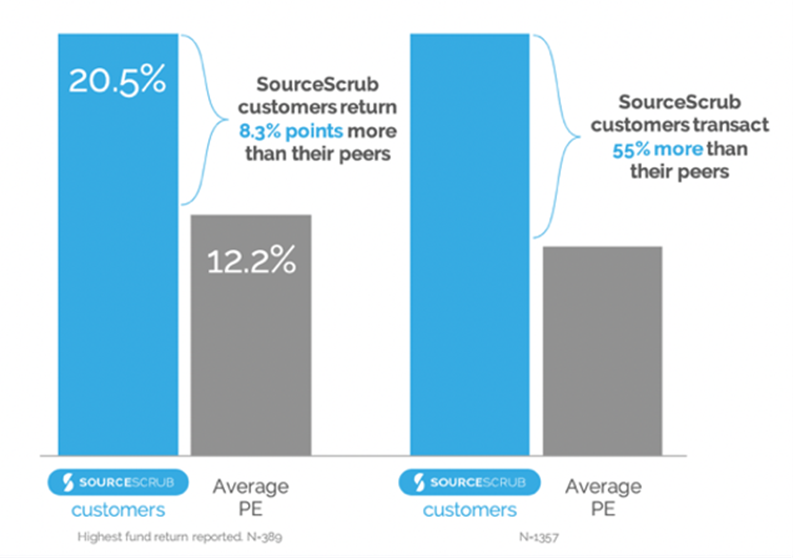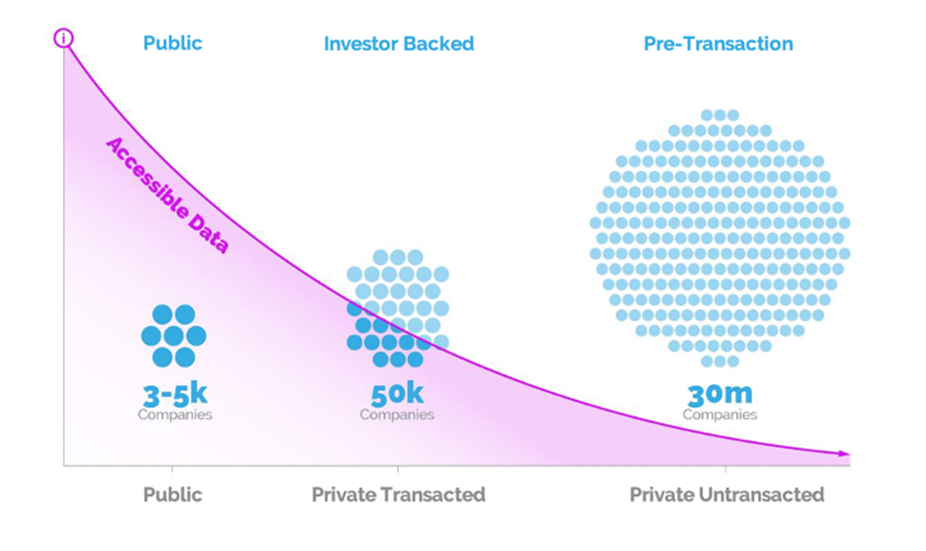
Data and technology present private equity and investment banking firms with unprecedented abilities to zero in on the right opportunities and win more deals. In fact, use of data and supporting technology correlates directly with higher IRR and increased dealflow.

However, the last several years have seen a major influx of data service providers vying for firms' business. And the more options there are to evaluate, the harder it is for dealmakers to distinguish what makes one provider different from or better than the next.
Choosing the right solution for your firm's investment strategy is critical, so for our most recent webinar, we brought in Tim Friedman, the founder of PE Stack, and Abe Borden, a director at Diversis Capital, to share their uncensored opinions about dealmaking data services. Here are 3 common mistakes our experts have identified and caution dealmakers to avoid when evaluating potential solutions.
It's easy to get wrapped up in a product demonstration and start envisioning all the ways your firm could potentially use certain features. That's why Tim advises his clients to always start their evaluation process by visually mapping out their current end-to-end deal workflow. This includes where their deals come from, how they manage companies' contact information, what the due diligence process entails, and more.
Next, it's time to identify how data and technology are currently being used in this process, as well as where there are gaps that a new solution might fill. This process gives dealmakers a clear picture of what they need to be successful and a basic framework for assessing service providers based on the firm's unique requirements "not the vendor's functionality.
"Where people screw up is when they start looking at products and they haven't thought about what they really want," says Tim."You're being driven by the sales people and it should be the other way around. You should be defining what you're looking for and looking for alignment in these products."
Everyone would like to find the perfect data service, implement it in minutes, and have it solve all of their research, sourcing, and due diligence needs. Our experts agree this is a fantasy. There's no such thing as a silver bullet when it comes to selecting a data product.
"One of the mistakes we see people make is thinking, 'Which one will we select?'" shares Tim. "But when it comes to market data, you're really building up a portfolio of tools to support your process. There might be data sources that do one thing better than others, so having the right mix is essential."
Abe agrees, "No solution will provide everything you need, but many of the products will claim they do everything." Ironically, being realistic about a solution's capabilities is the key to maximizing its value. Abe advises negotiating a lengthy implementation period with clear expectations, deliverables, and measures for success. "Continue to find ways to audit the services you use. Design traps in your process to measure the quality of the data and execution of the platform," he says. "Know what the strengths and weaknesses are."
Visit any data service provider's website and you'll find lots of claims about how much data they offer. And when firms are comparing lots of alternatives, it's easy to use these numbers as a way to simplify the elimination process. But as Tim says,"Sometimes more is not better."
A data set that includes millions of companies isn't much use if the attributes are inaccurate or incomplete. Private company data is dynamic, and complicated. To be useful, quality assurance and freshness are paramount.

"How do you filter and isolate the information that you care about, and how actionable is that data?" continues Tim. "You have to think about efficiency. What investment do you have to give as a resource to get value from these market data sources? Because if there's too much effort, then you won't get any value."
Determining which data service is right for your unique investment strategy and requirements takes more than counting features and data sets. Fortunately, learning from our experts' personal experiences and unvarnished opinions can help you make smart decisions and avoid costly mistakes.
For more advice on how to evaluate data service providers, watch the full webinar on demand. And for the six key questions every firm should ask to determine the ideal private company intelligence platform, download this free buyer's guide.